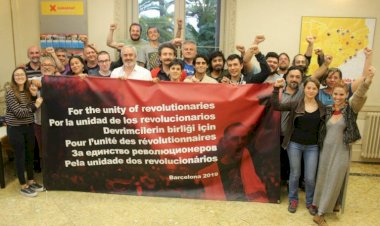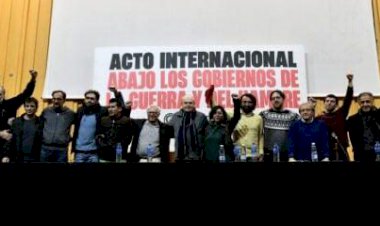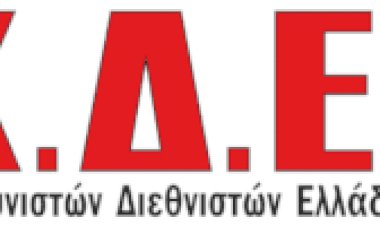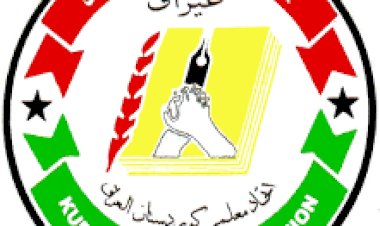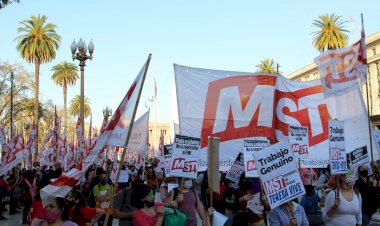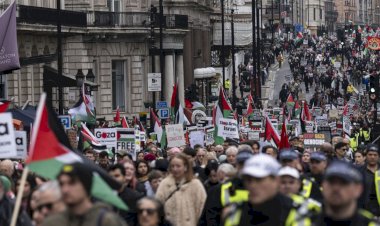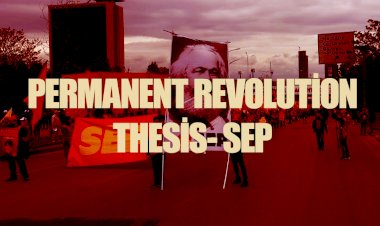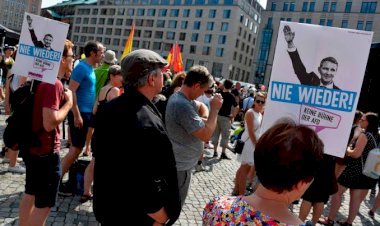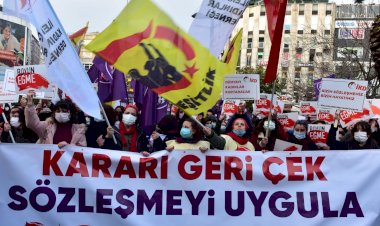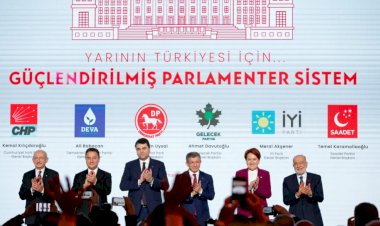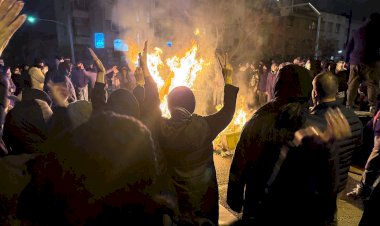Freedom for Revolutionaries in Turkey
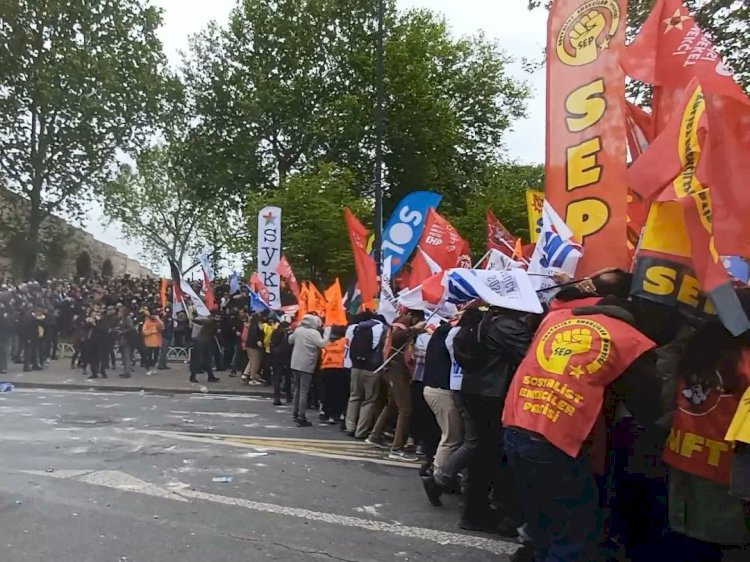
Freedom for Revolutionaries in Turkey
This early morning SEP comrades’ houses were invaded by the police by a total of 39 socialist from other organizations. Erdoğan has been giving order the courts to arrest the socialist left and left unionists due to the police clashes during May Day protests. This is the third wave of the police operations. On May 2, 50 leftist were arrested and currently 48 is still in prison. Today, they have taken 39 more. 5 SEP militants including railway workers, union leader, student and a leading comrades are persecuted. We expect most of the detainees will be imprisoned.
In Turkey, under Erdogan's rule, the economy is deteriorating, marked by high living costs and a rapid increase in poverty. There's significant unrest among young people, severe financial struggles among retirees, and mounting frustration among the working class as their wages diminish. Since 2002, Erdogan's government has centralized power, controlling the judiciary, legislature, executive branch, and media, effectively establishing a one-man dictatorship. However, Erdogan's grip on power is slipping, especially after losing key cities in recent elections due to public discontent over economic hardships.
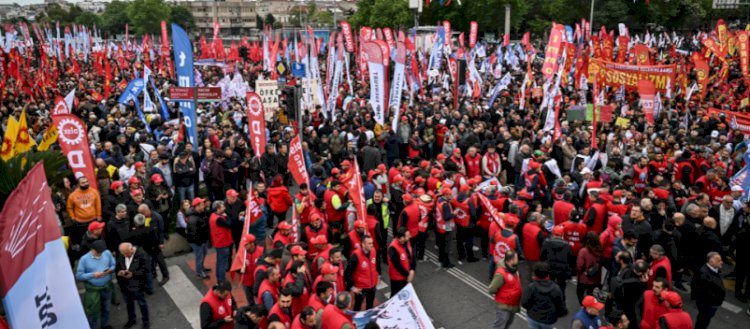
Feeling uneasy after these electoral setbacks and facing pressure to stabilize the faltering economy, Erdogan is particularly wary of rising social opposition, especially evident during May 1 celebrations. Labor unions, such as DİSK traditionally aligned with Erdogan's political rival, the CHP, and the KESK have long been central to the country's class struggle. However, during May 1st, despite enthusiasm and energy among protesters, unions focused solely on reclaiming Taksim Square in Istanbul, a symbolic site of resistance, instead of articulating broader demands. In this way, union bureaucracy did nothing to raise class demands and fight back against harsh austerity, which has been on the agenda by Erdoğan and supported by the opposition.
Erdogan promptly banned any gatherings in Taksim, deploying a heavy police presence and shutting down urban transportation in Istanbul. Despite these measures, tens of thousands still gathered, albeit without a clear agenda from the union leadership. After failed negotiations with the police, the unions retreated without presenting any concrete plan, leaving thousands of workers abandoned. It became evident that the unions' call for action in Taksim was more about symbolism than genuine mobilization for the class struggle.
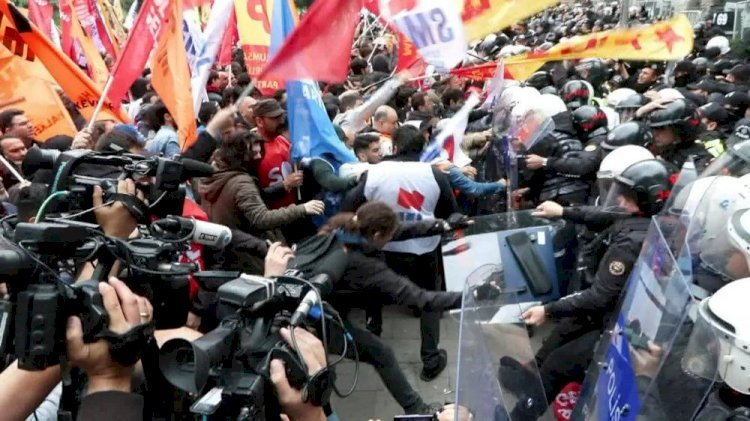
Subsequently, left-wing parties and activists attempted to breach police barricades, resulting in dozens of imprisonments. The Erdogan government capitalized on these events, launching a campaign against the left, further undermining dissent.
We appeal to international progressive forces for solidarity against Erdogan's repressive regime, which disregards basic rights and freedoms.



